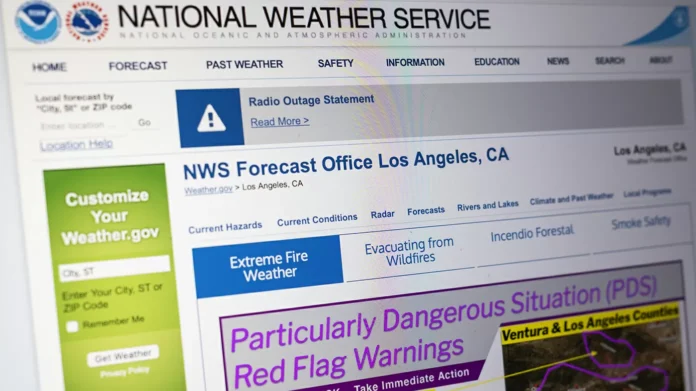The Trump administration has recently come under fire for canceling a crucial training program for meteorologists that prepares them to forecast during disasters. This decision has raised concerns about the government’s ability to effectively respond to natural disasters and protect the lives and property of its citizens.
The incident meteorologist training for the National Weather Service, which has been in place for over 40 years, was abruptly canceled due to “short staffing” and a significant reduction in travel expenses. This move has been met with widespread criticism from meteorologists and experts in the field, who argue that this training is essential for ensuring accurate and timely weather forecasts during emergencies.
The decision to cancel the training program has been met with disbelief and disappointment by many in the meteorological community. The National Weather Service Employees Organization, the labor union representing the agency’s employees, has expressed their concerns about the impact of this decision on the safety of the public and the effectiveness of the National Weather Service.
The incident meteorologist training program is a vital component of the National Weather Service’s disaster response efforts. It equips meteorologists with the necessary skills and knowledge to accurately predict and track severe weather events, such as hurricanes, tornadoes, and floods. This training is especially crucial in light of the increasing frequency and intensity of natural disasters in recent years.
The cancellation of this training program is a significant setback for the National Weather Service, which has been at the forefront of providing life-saving weather information to the public. The agency’s dedicated employees work tirelessly to monitor and forecast weather conditions, often putting their own lives at risk to protect others. Without proper training, their ability to perform their duties effectively is severely compromised.
The decision to cancel the training program is also a blow to the morale of the National Weather Service employees. They have already been facing challenges due to budget cuts and staff shortages, and this latest development only adds to their frustration and demotivation. The cancellation of the training program sends a message that their hard work and dedication are not valued by the government.
Moreover, the timing of this decision is particularly concerning, as we are in the midst of hurricane season. With the Atlantic hurricane season predicted to be above average this year, the National Weather Service’s ability to provide accurate and timely forecasts is more critical than ever. The cancellation of the training program could have serious consequences for the safety and well-being of those living in hurricane-prone areas.
The Trump administration’s decision to cancel the training program is short-sighted and could have far-reaching consequences. It not only puts the lives of the public at risk but also undermines the National Weather Service’s credibility and reputation. The agency has a long history of providing reliable weather information, and this decision could erode the public’s trust in their forecasts.
In light of the backlash and concerns raised by the meteorological community, it is imperative that the Trump administration reconsiders its decision and reinstates the incident meteorologist training program. The safety and well-being of the public should be the top priority, and this training is crucial for ensuring that the National Weather Service can fulfill its mission of protecting lives and property.
In conclusion, the cancellation of the incident meteorologist training program by the Trump administration is a concerning development that could have serious implications for the National Weather Service’s disaster response efforts. It is essential that the government recognizes the importance of this training and takes immediate steps to reinstate it. The safety of the public should never be compromised, and the National Weather Service must have the necessary resources and support to fulfill its vital role in protecting our communities.

